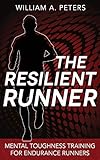Have you ever felt like giving up when things get tough, whether in your workouts, your diet, or just everyday life? We all have. But what if you could train your mind to be as resilient as your body? Developing mental toughness is a crucial skill, not just for athletes, but for anyone striving to achieve their goals. This article will explore how you can strengthen your mental fortitude through targeted training strategies.
Understanding Mental Toughness
Mental toughness is the ability to persevere through challenges, maintain focus under pressure, and bounce back from setbacks. It’s about having a growth mindset, believing in your ability to adapt and overcome, and consistently striving towards your objectives even when motivation wanes. Think of it like a muscle: the more you work it, the stronger it becomes.
Key Components of Mental Toughness
- Resilience: The ability to bounce back from adversity. This involves reframing negative experiences as learning opportunities and maintaining a positive outlook.
- Focus: The capacity to concentrate on the task at hand and avoid distractions. This includes managing stress and anxiety, which can significantly impact performance.
- Confidence: A belief in your abilities and potential. This comes from consistent effort, positive self-talk, and recognizing past successes.
- Commitment: The dedication to your goals and the willingness to put in the necessary work, even when it’s uncomfortable.
Training Techniques to Enhance Mental Toughness
Just like physical training, developing mental toughness requires consistent effort and dedicated practice. Here are some effective techniques:
Goal Setting and Visualization
Setting clear, achievable goals provides direction and motivation. Visualizing yourself successfully achieving these goals strengthens your belief in your abilities and reinforces your commitment. Break down large goals into smaller, manageable steps to create a sense of accomplishment and maintain momentum.
Mindfulness and Meditation
Practicing mindfulness and meditation can help you develop greater awareness of your thoughts and emotions. This allows you to observe negative thoughts without judgment and respond to challenging situations with greater composure. Regular meditation can improve focus, reduce stress, and enhance emotional regulation.
Self-Talk and Affirmations
The way you talk to yourself has a powerful impact on your mindset. Replace negative self-talk with positive affirmations. Focus on your strengths, acknowledge your progress, and remind yourself of your capabilities. This can help build confidence and resilience in the face of challenges.
Exposure to Stressful Situations
Gradually exposing yourself to stressful situations in a controlled environment can build resilience. This could involve challenging yourself with progressively more difficult workouts, practicing under pressure, or taking on new responsibilities. By facing these challenges head-on, you develop the ability to cope with stress and adversity.
Learning from Setbacks
Setbacks are inevitable. Instead of viewing them as failures, reframe them as learning opportunities. Analyze what went wrong, identify areas for improvement, and adjust your approach accordingly. This growth mindset is crucial for developing mental toughness.
Building a Support System
Surrounding yourself with supportive people who believe in you can provide encouragement and motivation. Sharing your goals with others and seeking guidance from mentors or coaches can help you stay on track and overcome obstacles.
Integrating Mental Toughness Training into Your Routine
Mental toughness training should be an integral part of your overall development, just like physical training and nutrition. Incorporate these practices into your daily routine:
Daily Mindfulness Practice
Start your day with a few minutes of mindfulness meditation. This can help you center yourself, improve focus, and manage stress throughout the day.
Pre-Workout Mental Preparation
Before each workout, visualize yourself performing at your best. Focus on your strengths and remind yourself of your goals. This mental preparation can enhance performance and build confidence.
Post-Workout Reflection
After each workout, take a few minutes to reflect on your performance. Acknowledge your accomplishments, identify areas for improvement, and set intentions for your next workout.
Regular Goal Review and Adjustment
Periodically review your goals and make adjustments as needed. This ensures that your goals remain relevant and challenging, and it helps you stay motivated and focused on your long-term vision.
 Mental Toughness Training
Mental Toughness Training
- Audible Audiobook
- James E. Loehr (Author) - James Loehr, Peter McLaughlin (Narrators)
- James E. Loehr (Author)
- English (Publication Language)
- Amazon Kindle Edition
- Bennett , Michael T. (Author)
- Metcalf, Chad (Author)
- English (Publication Language)
- Horne, Troy (Author)
- English (Publication Language)
- McNab, Chris (Author)
- English (Publication Language)
- Hardcover Book
- Selk, Jason (Author)
- Loehr, James E. (Author)
- English (Publication Language)
- Used Book in Good Condition
- Bell, Dr. Rob (Author)
- Peters, William A. (Author)
- English (Publication Language)
Conclusion
Improving mental toughness is a journey, not a destination. It requires consistent effort, dedicated practice, and a willingness to embrace challenges. By implementing the training techniques outlined in this article, you can strengthen your mental fortitude, enhance your performance, and achieve your goals, both in fitness and in life. Remember, mental toughness is a skill that can be developed and honed over time. Start incorporating these practices into your routine today and unlock your full potential. What are your favorite strategies for boosting mental toughness? Share your thoughts and experiences in the comments below! Consider checking out our related articles on mental fitness and strategic drills for further guidance. You might also be interested in our articles on how to play smart pickleball and effective ways to increase speed and power for pickleball. Also, check out this resource on managing court fatigue. Developing mental toughness is a valuable investment in yourself, and the rewards are well worth the effort.









